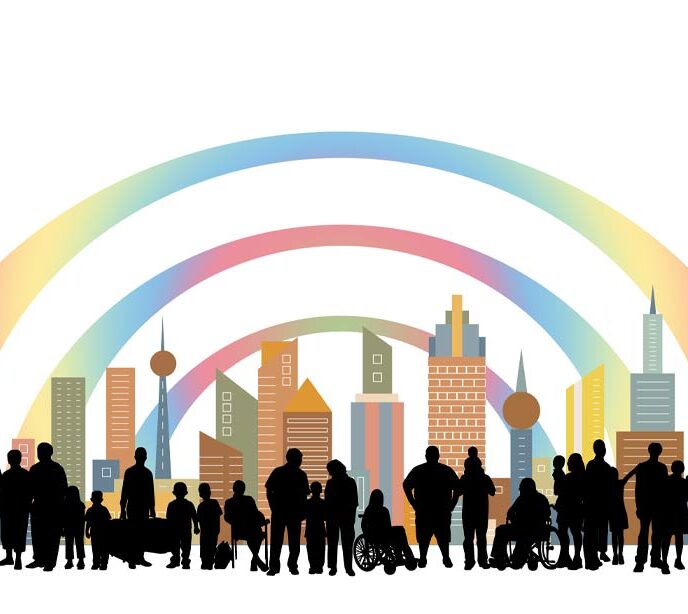Autism BrainNet Launches ‘It Takes Brains’ Donor Registration Website
Autism Speaks, the Simons Foundation and the Autism Science Foundation have launched “It Takes Brains,” the new donor registration site for Autism BrainNet.
Autism Speaks Chief Science Officer Rob Ring joined Autism BrainNet Director David Amaral and the Simons Foundation’s Marta Bennedetti in making the announcement at the annual Stakeholders Luncheon at the International Meeting for Autism Research (IMFAR), in Atlanta today.
A year ago, the Simons Foundation and Autism Speaks announced their collaboration in establishing Autism BrainNet to collect, store and distribute the precious brain tissue needed to advance scientific understanding and treatment of autism. The new foundation grew out of the Autism Speaks Autism Tissue Program.
As Autism BrainNet’s outreach program, the “It Takes Brains” website encourages families affected by the disorder to register as future donors.
“I would encourage any family to register to be donors,” says BrainNet family participant Valerie Hund, of Livermore, California. “Although we could not have anticipated losing our son to a seizure, for us, in that moment, we gave back and did something that felt right. So now Grayson can be a pioneer in helping make this next quantum leap in research. Out of something bad, something good came about.” (Also see “Meet the Matthews,” a video message from a newly registered family, below.)
The critical need for brain donations
A severe shortage of human brain tissue has hindered the pace of autism research. At the same time, these precious donations have led to recent breakthroughs.
For instance, research has revealed structural differences between brain tissue from individuals affected by autism and typically developed brains. Other studies have highlighted differences in the numbers and sizes of brain nerve cells, or neurons. Still other research has picked up signs of increased inflammation in brain tissue from individuals affected by autism. In addition, studies have uncovered differences in how genes are expressed inside their brain cells.
However, researchers have not been able to adequately confirm these findings – in part due to the long-standing shortage of donations.
Autism Speaks ATP continues through Autism BrainNet
Through Autism BrainNet, the resources of Autism Speaks Autism Tissue Program will continue to be available for the highest quality research. The Autism BrainNet staff will also continue the ATP’s tradition of close communication with donor families. This will include program updates and news about ongoing brain research.
“Since it was launched in 1998, the Autism Speaks Autism Tissue Program has been committed to providing the rare and precious resource of brain tissue to many highly qualified scientists,” Dr. Ring said. “The launch of Autism BrainNet enables us to continue this mission and expand the number of available collection sites and represents an unprecedented investment ensuring that researchers have access to the brain tissue they need to answer the big questions about autism.”
Autism BrainNet’s founding members
Autism BrainNet is a consortium of academic sites funded collaboratively by the Simons Foundation and Autism Speaks. Together they will collect, store and distribute the donated brain tissue needed to advance scientific understanding of the neurobiology and genetics of autism.
As inaugural members, the following institutions will become collection and storage sites:
* Harvard University/Beth Israel Deaconess Medical Center, Boston;
* The Icahn School of Medicine at Mount Sinai, New York City;
* The University of California MIND Institute, Sacramento; and
* The University of Texas at Southwestern Medical School, Dallas.
Each site will adhere to standard protocols for clinical data and brain acquisition, preparation, storage and distribution to researchers. Plans call for additional sites worldwide.
“Studies on brain tissue represent the best way for researchers to gain a deeper understanding of the genetic, cellular and molecular causes of autism spectrum disorder,” Dr. Amaral said. “This research takes us important steps closer to effective treatments that will lessen disability for affected individuals.”
For more information, visit the It Takes Brains website or call: 1-877-333-0990.
To read the original article published on Autism Speaks website see the link below
Together, we can unlock your child’s potential
Related News

06/11/2025
Overcoming Stereotypes
Autism stereotypes are common and can have significant social consequences for autistic children. Misconceptions hinder the acceptance and inclusion of autistic children. Challenging these stereotypes is vital for creating a more understanding and supportive society. Challenging Common Autism Stereotypes When people hear the word “autism,” they often imagine a narrow set of images, like the […]

06/11/2025
What’s Next After ABA Therapy?
There are a number of reasons why an autistic child might stop ABA therapy, and one is that they have reached their goals. In this article, we take a look at what parents can expect going forward. What Are the Next Steps After ABA Therapy? As a parent, you only want what’s best for your […]

06/11/2025
Do Babies with Autism Smile?
We take a look at the importance of early intervention, some of the milestones for parents to look out for, and the more common signs of autism in babies. Do Babies with Autism Smile? Watching your baby grow is an exciting time, certainly one of life’s quiet wonders. From those first sleepy stretches to the […]


